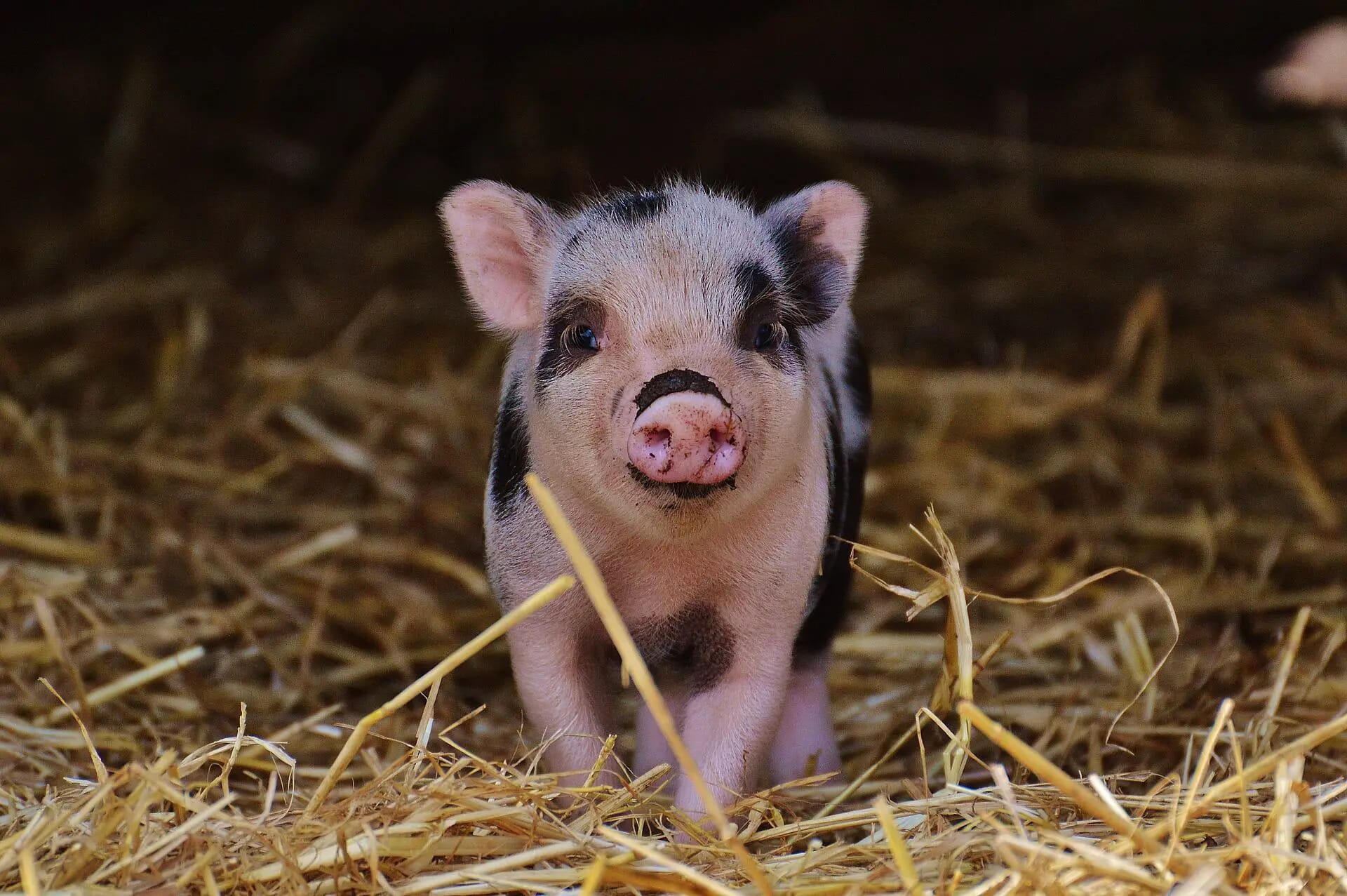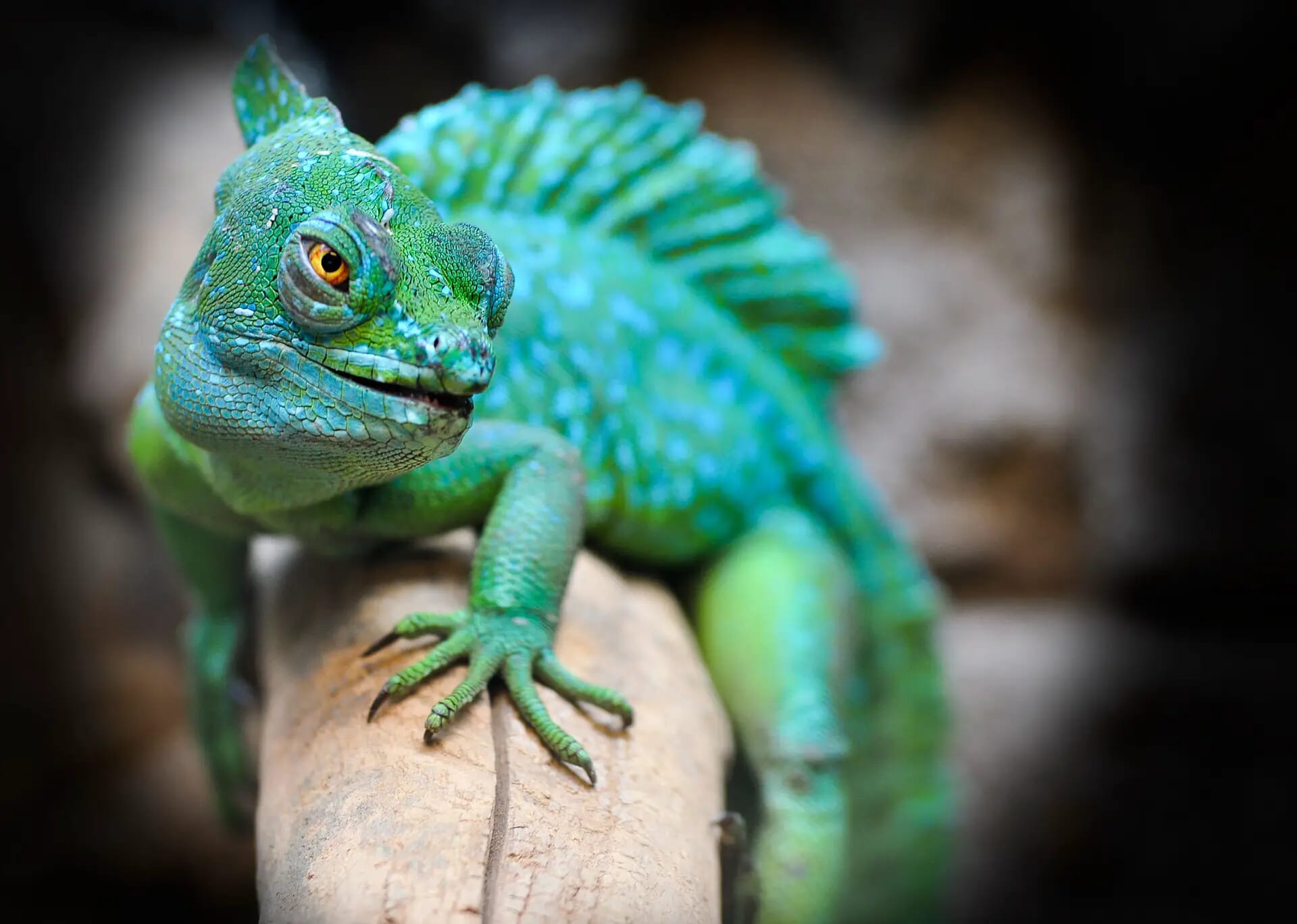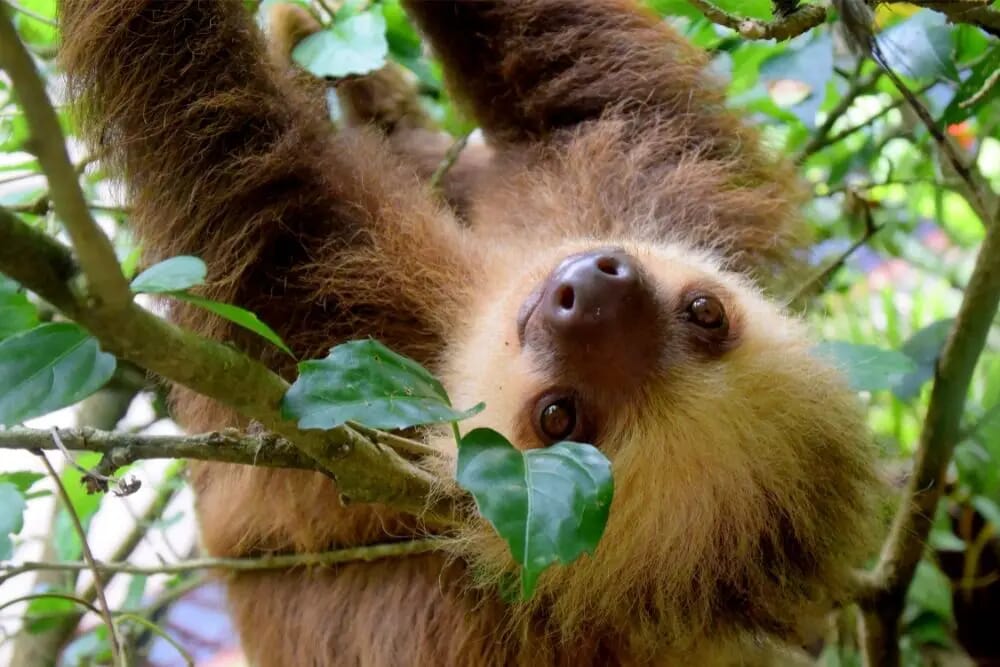Last Updated on December 27, 2023
Get ready to explore the pig’s rich tapestry of symbolism and totemic wisdom as you venture outside the barnyard Symbolism.
These clever and clever creatures have a special place in the world of spiritual symbolism because they represent fertility, abundance, and the value of food.
We’ll delve deeply into the symbolism of pigs in this investigation, providing insights that go beyond how they appear on farms.
We’ll show you how pigs can be totemic animals, including the obstacles they can help you overcome, the deeds they can motivate you to do, and the life-changing opportunities they present to those who welcome them.
Prepare to uncover your inner wisdom and delve into the pig totem’s more profound symbolic meanings.
RELATED: Cow: Spiritual Meaning, Dream Meaning, Symbolism & More
Key Takeaways
- Abundance and Prosperity: Pigs are often associated with abundance and prosperity, symbolizing good fortune, wealth, and a bountiful life.
- Fertility: Pigs are symbols of fertility, representing the ability to reproduce and the abundance of life.
- Hard Work and Diligence: Pigs are known for their hard work in searching for food, symbolizing diligence, resourcefulness, and the rewards of industrious efforts.
- Symbol of Luck: In some cultures, pigs are considered symbols of luck and good fortune, bringing positive outcomes and success.
- Social Intelligence: Pigs are known for their social behavior and intelligence, symbolizing the importance of collaboration, community, and clever problem-solving.
- Comfort and Contentment: Pigs are often associated with comfort and contentment, symbolizing a happy and fulfilling life.
What Does a Pig Represent as a Spirit Animal and Totem Animal?
Understanding the meaning and symbolism of pigs as totem animals and spirits can be very beneficial. The pig is a spirit animal that frequently represents traits of luck, prosperity, and plenty.
It acts as a reminder of the possibility of achieving financial success and the significance of appreciating life’s gifts.
Being a spirit animal, the pig can also promote moderation and balance by highlighting the need to abstain from excess and enjoy life’s pleasures in moderation.
Because it can survive in a variety of settings, the pig is a totemic animal that stands for traits like resourcefulness and adaptation.
Furthermore, the significance of grounding oneself and maintaining a connection to nature is highlighted by the pig’s strong bond with the earth.
The Symbolic Importance and Interpretation of Pig
Worldwide, pig symbolism is intricate and varied, influencing many different cultures and customs.
The meaning of the pig varies depending on the context. Because pigs breed so freely, they are associated with fertility, prosperity, and abundance in some cultures.
But the pig can also represent excess and indulgence, as in the expression “living high on the hog.”
Because it can survive in a variety of settings, pigs are seen as symbols of transformation and adaptability in some spiritual traditions.
Furthermore, the pig’s intimate relationship with the soil—it roots itself and forages for food—can represent a strong bond with the natural world and the significance of maintaining one’s sense of self.
Knowing the meaning of pigs in symbolism enables us to consider their significance in our lives and cultures and to recognize their special qualities.
What Does a Pig Mean Spiritually?
Every culture has a different spiritual meaning for pigs, and each one offers something different.
Pigs are highly prized in Chinese culture and are connected to luck and wealth; certain “Years of the Pig” are marked as prosperous times.
Pig statues are frequently used in feng shui to draw wealth and good energy. Pigs were sacred animals to Native Americans, who used them as sacrificial animals to protect their communities.
Pigs were associated with the goddess Isis in ancient Egypt and were thought to represent fertility, wealth, and happy families.
However, because pigs are thought to be unclean, some cultures, including some Islamic and Jewish traditions, have negative views of them.
Despite these variations, most cultures emphasize the positive symbolism of pigs as being associated with fertility and wealth.
Let’s now explore the meaning of the pig as a totem animal.
The Pork as Your Spirit Animal: Uncovering Its Meaning and Intelligence
The spirit animal of the pig represents a wide range of attributes and meanings. The pig is a spirit animal that stands for fertility, abundance, and prosperity.
It is frequently connected to luck and the possibility of making money.
Since pigs are known for having a large reproductive population, their symbolism of growth and abundance is further reinforced.
The pig spirit animal is also strongly associated with the notion of indulging in and savoring life’s pleasures.
It invites us to enjoy life’s small pleasures, recognize the depth of our encounters, and not hold back when indulging our senses.
Moreover, the spirit animal symbolism of the pig encompasses issues related to change and flexibility.
Pigs are recognized for their capacity to adjust to various settings and circumstances, signifying the importance of being flexible and resourceful in life.
RELATED: Goat: Spiritual Meaning, Dream Meaning, Symbolism & More
Utilizing the Pig as Your Totem Animal: Understanding Its Significance and Power
Totems are intriguing symbols that are present in many cultures across the world and frequently stand for both strength and change.
Given that cultural interpretations of totems can vary, it is important to recognize their interpretive flexibility in order to fully comprehend them.
On the pig totem, on the other hand, everyone seems to agree.
Pigs are often thought to be symbols of fertility, prosperity, luck, intelligence, and tenacity.
Since pigs are thought to represent the best aspects of human nature, people who have pigs as their totem are likely to be both financially and spiritually wealthy.
This spiritual wealth is linked to harmony with the universe, inner peace, and a deep connection to oneself.
It’s important to understand that pigs have symbolic meanings that go beyond wealth.
In addition, pig totems can bring good fortune in a number of areas of life, including love, family, fertility, health, and general well-being.
Gaining money is one kind of luck, but it’s not the only thing to focus on.
Pig-related dreams can be very meaningful since dreams frequently offer advice or insights.
Such dreams can offer direction and clarity in a variety of life circumstances when they are interpreted.
Comprehending the significance of pigs in dreams enables people to relate their dream experiences to particular facets of their real-life experiences, rendering them an invaluable instrument for introspection and individual development.
RELATED: Rooster: Spiritual Meaning, Dream Meaning, Symbolism and More
Finding Your Power Animal: Meaning and Perspectives
Understanding Power Animals:
- Power Animals are spiritual or spirit guides facilitating a connection with one’s inner self, incorporating positive aspects of the chosen animal.
Symbolism of a Pig as a Power Animal:
- If the pig is your Power Animal, it signifies positive traits.
- Represents both strength of character and endurance.
Hardiness and Resilience:
- Pigs are hardy animals, known for withstanding various pressures.
- Having a pig as a Power Animal symbolizes your toughness and the ability to persevere in challenging circumstances.
Fortunate Representation:
- Considering a pig as your Power Animal is generally fortunate, reflecting your resilience and capacity to endure in all situations.
The Pig’s Symbolic Meaning and Significance in Native American Tradition
Since pigs are not native to Native American cultures, they play little part in their spiritual or cultural symbolism.
Rather, the animal totems and symbols used by Native American tribes were unique to their respective regions and belief systems.
Since pigs were brought to the Americas by European settlers, they have not been associated with the same spiritual or cultural significance as other animals that were valued by different Native American tribes, such as the buffalo, eagle, or wolf.
Because of this, the pig is not a significant figure in Native American tradition; instead, other cultures with a longer history of pig-human interactions are more likely to have adopted the pig’s symbolism.
The Symbolism of Pigs’ Mythical and Folkloric Significance Revealed
Pigs have varied symbolic meanings in mythology and folklore, which often reflects the various roles these animals have had in human societies.
Pigs were revered, connected to gods, and/or seen as symbols of fertility and abundance in certain ancient cultures.
For instance, the pig was associated with the goddess Isis in ancient Egypt and stood for both transformation and fertility.
On the other hand, there are taboos against eating pigs because they are considered dirty and impure in some religious traditions.
Numerous Asian folktales contain the “Golden Pig” story, which stands for wealth and prosperity.
This variety of meanings emphasizes the pig’s intricate and varied role in human history, demonstrating its capacity to represent both virtues and vices based on cultural and contextual viewpoints.
The Symbolism of Pigs in Literature and Art
For centuries, pig symbolism has provided rich and varied interpretations in literature and art, serving as a source of inspiration.
The pig has been used as a symbol for many different ideas and feelings in literary works.
Pigs are portrayed as symbols of gluttony, excess, and indulgence in certain artistic works, which comment on human nature and the vices of society.
On the other hand, as seen in children’s books and artwork, writers and artists have also utilized pigs to symbolize purity, simplicity, and the natural world.
One well-known instance is found in George Orwell’s “Animal Farm,” where the misuse of power and political corruption are represented by pigs.
On the other hand, A.A. Milne’s endearing Piglet from “Winnie the Pooh” stands for friendship, loyalty, and having the guts to face one’s fears.
Pigs have been depicted in art history in a variety of ways, from modern sculptures to prehistoric cave paintings, all of which represent the individual interpretation of pig symbolism by the respective artists.
Pigs are still a popular and thought-provoking theme in literature and art, whether they are used as a symbol of purity or as a metaphor for social critique.
Celtic Mythology’s Symbolic Tales and Meanings of the Pig
The pig is a significant symbol of fertility, abundance, and the Otherworld in Celtic mythology.
In Celtic mythology and customs, pigs are frequently connected to gods and otherworldly entities, and they have a variety of functions.
A prominent feature of the pig’s symbolism in Celtic mythology is its association with the Otherworld, an area that exists outside of the mortal realm.
In Celtic mythology, the boar—a wild ancestor of the domestic pig—plays a significant role.
Often regarded as a fearsome and sacred animal, the boar stood for bravery, strength, and virility.
The boar was associated in Irish mythology with the warrior hero Diarmuid Ua Duibhne, who was endowed with special powers by a supernatural boar-like mark on his body.
Boar hunts were important occasions in Celtic warrior culture, symbolizing bravery and valor.
One of the most venerated goddesses in Celtic mythology, Brigid, was also connected to pigs.
Pigs were revered by the goddess Brigid, a multifaceted figure connected to poetry, healing, and fertility.
In her honor, people would give food offerings to pigs, with the belief that these gestures would bestow blessings of plenty and prosperity.
Pigs in Japan: Cultural Significance and Symbolism
The pig is associated with many different meanings and cultures in Japan. In Japanese culture, one of the most well-known connections with pigs is the Zodiac calendar, in which a pig symbolizes one of the twelve animal signs.
It is said that those born in the Year of the Pig, or “Inoshishi” as it is known in Japanese, have qualities like hard work, kindness, and a love of people.
Wild boars, also known as “inoshishi,” are described in stories and legends as strong and occasionally frightening animals in traditional Japanese folklore. They are frequently connected to bravery and tenacity.
Pork is also a staple in Japanese cooking, appearing in a variety of meals such as ramen broth and tonkatsu (fried and breaded pork cutlets), adding to the pig’s culinary importance in that nation.
Feng Shui Pig Symbolism: Harmony and Prosperity
- Pigs are a symbol of prosperity, wealth, and abundance in Feng Shui.
- They are positioned to improve the wealth corner and are connected to the element of Earth.
- Pigs are thought to attract good fortune and encourage financial growth.
The pig represents prosperity, wealth, and abundance in Feng Shui.
In order to attract material and financial success, the pig, which is connected to the Earth element, is frequently portrayed as a ceramic or porcelain figurine that is displayed in homes and businesses.
According to Feng Shui practitioners, the pig’s presence can help enhance and activate the southeast section of the room, known as the wealth corner, and promote financial growth.
Pigs are frequently depicted as having a cheerful expression and bearing a coin or treasure to represent wealth.
To bring wealth and good fortune into the room, it is important to position the pig figurine in the proper spot, usually facing the entrance.
The pig’s meaning in Feng Shui is a potent reminder of the possibility of monetary abundance and prosperity when harmony and balance are achieved within one’s environment.
The Biblical Significance of Pigs
Pigs are frequently described as filthy and impure animals in the Bible.
Pork is strictly forbidden in Leviticus and Deuteronomy, where it is referred to as “unclean.”
This difference is a component of the dietary regulations that the Israelites followed in the Old Testament in order to preserve ceremonial purity.
Pigs are associated with negativity in biblical narratives; a story from the New Testament highlights this, as Jesus drives them into a lake while they are possessed by demons.
Considering the Pigs’ Symbolism in Dreams
Let’s now look at what the dream significance of the pig is. As with the spiritual and totemic meaning of the pig, in dreams, pigs usually have positive meanings.
| Dream Element | Interpretation |
| Seeing a Pig | Positive or negative varies by context |
| Pig’s Actions | Relevance varies according to the action |
| Spiritual Wealth | Reflects inner peace and well-being |
Analyzing Pig Dreams:
- Consider whether you recently saw a pig, as dreams often reflect recent experiences.
- If not, the dream may have particular significance in your life and future.
Dream Actions of the Pig:
- The pig’s actions in the dream hold significance.
- For example, if the pig is searching for something, it may symbolize your need to search for new opportunities or change.
General Meaning in Dreams:
- Pigs in dreams often represent wealth, both financial and spiritual.
- Symbolize the need for health and prosperity, reflecting positive signs or addressing fears.
Positive and Negative Connotations:
- Pigs in dreams can have positive or negative connotations.
- Positive: Reflects fertility, wealth, and well-being.
- Negative: Stereotypical representations may indicate concerns about hygiene or work habits.
Interpretation Complexity:
- Dream interpretations vary, and the wide range of pig actions adds complexity.
- – Interpretations depend on individual dreamscapes and personal experiences.
Power Animal Representation:
- As a Power Animal, the pig signifies strength of character and endurance.
- Represents the ability to persevere in challenging circumstances.
- Generally considered fortunate, reflecting resilience and capacity to endure.
RELATED: Bull: Spiritual Meaning, Dream Meaning, Symbolism & More
Pigs in Zodiac Signs and Astrology: An Understanding of Their Significance
Chinese astrology and the Chinese zodiac system include pigs, or boars.
One of the twelve animal signs of the Chinese zodiac is the Year of the Pig, also known as the Year of the Boar.
The Pig is one of the animal signs that are linked to particular qualities and traits of personality.
It is said that those who are born in the Year of the Pig—which occurs once every twelve years—have particular traits.
Kindness, integrity, generosity, and a strong sense of social justice are some of these qualities.
Pigs are frequently thought of as kind people who like mingling, fostering friendships, and lending a hand to others. They are renowned for being honest and forthright.
The pig is also connected to abundance and wealth in Chinese culture. People who are born in the Year of the Pig are said to have wealth and luck throughout their lives.
It’s crucial to remember that Western astrology and zodiac signs, which are determined by the positions of celestial bodies like the sun, moon, and planets at the moment of a person’s birth, are different from Chinese astrology and the Chinese zodiac system.
Western astrology is based on star signs, or “sun signs,” and incorporates a wider range of celestial influences than the Chinese zodiac, which is centered on animal signs and the characteristics that correspond with them.
RELATED: Sheep: Spiritual Meaning, Dream Meaning, Symbolism & More
Interpreting What It Means to See a Pig
The interpretation of seeing a pig in a dream or as a symbolic encounter can vary based on contextual, cultural, and personal factors.
Because pigs are associated with wealth and good fortune in some cultures, seeing one may occasionally represent abundance, fertility, and prosperity.
On the other hand, since pigs are sometimes connected to gluttony, it may indicate that problems pertaining to overindulgence or excess need to be investigated.
In a more general sense, seeing a pig can make one reflect and evaluate their present situation, whether it be financial or not.
A person’s personal beliefs, experiences, and the particular context in which they encounter the pig all play a role in how they interpret such an encounter.
What Does It Mean to Hear a Pig and What Does It Signify?
In dreams or in real life, hearing the sound of a pig can have symbolic meaning that varies based on personal beliefs and cultural contexts.
Pigs are considered to be symbols of abundance and prosperity, so in certain cultures, a pig’s squealing or grunting sound may be connected to financial matters and wealth.
Alternatively, considering the pig’s reputation for gluttony in some cultures, it might represent a need for moderation and a reminder to abstain from excessive or indulgent behavior.
It is important to take into account one’s own beliefs and feelings when interpreting an encounter with a pig because the meaning of hearing its sound is highly subjective and can be influenced by personal experiences and cultural perspectives.
Considering the Pig Symbolism in Different Perspectives
Pig symbolism has many different interpretations and meanings based on historical, cultural, and contextual elements.
Here are a few examples of symbolic pigs:
- Wealth and Prosperity: Pigs are considered to be a symbol of prosperity, abundance, and wealth in many cultures. Pigs are associated with fertility and the capacity to bear many children, which has led to the myth that they are lucky animals.
- Gluttony and Excess: Pigs are sometimes seen as symbols of gluttony and overindulgence due to their voracious appetite. This interpretation emphasizes the need for moderation in one’s life.
- Transformation and Rebirth: Pigs are known for their ability to root in the earth and transform the soil. This has led to symbolism related to transformation, change, and rebirth.
- Simplicity and Humility: Pigs are frequently linked to attributes like modesty, simplicity, and groundedness. Their proclivity for living near to the earth and wallowing in mud can represent a modest and rooted personality.
Pig Tattoos: Symbolism and Design Inspiration
Many meanings can be associated with a pig tattoo, which frequently reflects the wearer’s symbolism.
As a result of the pig’s widespread cultural associations with abundance and wealth, some people decide to get pig tattoos as representations of prosperity and good fortune.
Some people may choose to have a pig tattoo to stand for attributes like modesty, simplicity, or a grounded personality.
Pig tattoos can also have sentimental significance if they represent a link to farming, agriculture, or a specific cultural background.
The meaning behind a pig tattoo is subjective and can be as different and distinctive as the people who choose to cover themselves in this image.
Finding Knowledge in Proverbs and Sayings about Pigs
| Saying | Meaning |
| “When Pigs Fly” | Extreme scepticism |
| “Sweating like a pig” | Heavy sweating |
| “Buy a pig in a poke” | Buying without verifying |
| “Cast pearls before swine” | Presenting the unappreciative with something worthwhile |
| “In the pig’s eye!” | Exclamation of disbelief |
- “When pigs fly.” – This English idiom is used to express extreme skepticism about the likelihood of something happening. Pigs are not known for their flying abilities, so the phrase implies that the event in question is highly improbable.
- “Sweating like a pig.” – Contrary to the image it conjures, this saying refers to heavy sweating. Pigs don’t have functional sweat glands, so they can’t sweat, making the phrase somewhat ironic.
- “Buy a pig in a poke.” – This saying, which dates back to medieval Europe, refers to buying something without first checking it out. A “poke” was a bag or sack, and vendors would occasionally trick purchasers by substituting a less expensive item—like a cat—for the pig in the bag.
- “Cast pearls before swine.” – This saying, which comes from the Bible (Matthew 7:6), compares giving something important or profound to a person who is unable to recognize or comprehend its value to giving pearls to swine (pigs).
- “Like a hog in a clover.” – This phrase describes someone who is in a state of great contentment or happiness, often surrounded by plenty, similar to a pig enjoying lush clover pastures.
- “In the pig’s eye!” – An exclamation of disbelief or rejection, implying that the statement or proposition is false or unlikely.
The Divine Pigs: Swine-Associated Deities and Gods
| Deity | Associated Qualities |
| Varahi (Hindu) | Divine strength, protection |
| Zhu Bajie (Chinese) | Represents human desires |
Worldwide, pig gods and goddesses can be found in many different mythologies and cultures. These gods are frequently connected to fertility, plenty in agriculture, and occasionally even mischief.
For instance, the goddess Varahi in Hinduism is portrayed with a boar’s head and is revered as a representation of heavenly power and defense.
Zhu Bajie, popularly known as Pigsy in Chinese folklore, is a well-known figure from the beloved book “Journey to the West” and a member of the Monkey King’s team.
Pigsy is a symbol for human desires and the battle to subdue them.
These pig gods and goddesses offer a distinctive perspective through which various cultures examine spirituality, human nature, and character traits.
Meeting a Dead Pig: Meanings and Contextualizations
Depending on the circumstances and the observer’s past experiences, seeing a dead pig can elicit a wide range of feelings and ideas.
Generally speaking, meeting a dead pig can represent the idea of transformation, the end of a cycle, and the transience of life.
It might act as a reminder of our mortality as well as the cycles of deterioration and rebirth.
Furthermore, seeing a dead pig may also raise issues with waste management, sanitation, or health in some cultures.
The way that one interprets a sighting like this can differ greatly depending on personal beliefs, cultural context, and the particulars of the sighting.
Enlightening the Oink-tastic World of Swine with Interesting Pig Facts and Trivia
- Sacred in Ancient Egypt: In ancient Egypt, pigs were considered sacred to the goddess Isis, who was associated with fertility and motherhood. Pigs were often sacrificed in her honor.
- The Pig as an Animal Guide: In some spiritual traditions, the pig is viewed as a spirit guide that offers wisdom related to adaptability, resourcefulness, and grounding. It symbolizes the importance of staying rooted and connected to the earth.
- Symbol of Transformation: Because they can turn waste into fertilizer and have a deep rooted habit in the ground, pigs are strongly associated with transformation and regeneration. This symbolism emphasizes the concept of transforming adversity into opportunity for personal development.
- Chinese Zodiac: In Chinese astrology, the Pig is one of the twelve animal signs of the zodiac. Each year is associated with a specific animal, and the Year of the Pig is considered lucky, bringing wealth and prosperity.
- Biblical Significance: In the Bible, pigs are deemed unclean animals, and their consumption is strictly prohibited in the dietary laws of Leviticus and Deuteronomy. This reflects their symbolic impurity in Judeo-Christian traditions.
- Hindu Boar Avatars: One of the main gods of Hinduism, Lord Vishnu, is said to have once assumed the form of a boar, or Varaha, in order to save the earth goddess, Bhudevi, from the depths of the cosmic ocean. This avatar of a boar represents the divine act of protecting the planet.
Promoting the Well-Being of Pigs: Organizations and Supporters
- Humane Society of the United States (HSUS): HSUS works to protect all animals, including pigs, through advocacy, rescue, and legislative efforts. They campaign against factory farming and promote the adoption of more humane practices.
- World Animal Protection: The goal of this international organization is to enhance animal welfare on a global scale. They push for higher standards and try to bring attention to the poor living conditions that many pigs are kept in.
- Compassion in World Farming: Specializing in farm animal welfare, this organization campaigns for better treatment of pigs and other livestock. They push for higher animal welfare standards in the food industry.
- Farm Sanctuary: Farm Sanctuary rescues and provides shelter for farm animals, including pigs, and educates the public about the realities of factory farming. They advocate for the ethical treatment of farm animals and promote plant-based diets.
- PETA (People for the Ethical Treatment of Animals): PETA is known for its advocacy for animal rights. They conduct investigations into animal cruelty and work to raise awareness about the treatment of pigs in the meat industry.
- Mercy for Animals: This organization advocates for plant-based diets and conducts undercover investigations to reveal cruelty in factory farms. Additionally, they support improved living circumstances for pigs and other farm animals.
- The Pig Preserve: This sanctuary in the United States is dedicated to rescuing and providing a haven for pigs. They aim to raise awareness about pig intelligence and their need for proper care.
- World Wildlife Fund (WWF): While primarily known for its work with endangered species, WWF also focuses on the conservation of wild pigs and their habitats, recognizing their ecological importance.
- Animal Equality: This global organization advocates for policy changes, conducts investigations, and promotes plant-based diets in an effort to protect farmed animals, including pigs.
Utilizing Pig Symbolism in Everyday Life: Beneficial Advice and Techniques
| Application | Practical Insights and Practices |
| Financial Responsibility | Managing resources wisely |
| Moderation | Finding balance in consumption habits |
| Adaptability | Adapting resiliently to changes in life |
| Groundedness | Connecting with inner self and the world |
Pig symbolism has useful applications in day-to-day living that foster harmony, wealth, and personal development.
By accepting the pig’s symbolic meaning, we can learn how to manage our resources sensibly and engage in financial responsibility.
Pigs’ moderation serves as a reminder to us to balance our spending and consumption patterns in order to promote both our financial and physical well-being.
Furthermore, the pig’s adaptability serves as a reminder to us to face life’s changes with fortitude and an open mind.
We can establish connections with both our inner selves and the outside world by remaining grounded in our endeavors and exhibiting humility.
RELATED: Bison: Spiritual Meaning, Dream Meaning, Symbolism & More
Frequently Asked Questions
What does the pig symbolize in different cultures and religions?
The religious and cultural meanings of pigs vary greatly. Pigs can represent impurity or gluttony in certain cultures, while in others they are linked to wealth and abundance. Pig symbolism must be understood in the context of a particular culture or religion.
Are there spiritual practices or rituals involving pigs?
Indeed, pigs are used in rituals and ceremonies in certain spiritual traditions. For instance, Lord Vishnu’s Varaha avatar is worshipped and boars are held in high regard in Hinduism. Pigs have been used in sacrificial ceremonies in various cultures.
How can I apply pig symbolism to my daily life for personal growth?
Pig symbolism can be utilized in a variety of contexts, including encouraging financial responsibility, embracing adaptability in the face of change, and practicing moderation in consumption. It’s about making mindful and balanced choices and actions.
Amulets or symbols with pig themes are thought to be lucky and protective in some cultures. For instance, pig-shaped figurines or charms can be worn or put on display to ward off bad energy and draw prosperity.
Is there a connection between pig symbolism and environmental or ecological concerns?
Indeed, some people use pig symbolism as a reminder of how important it is to live sustainably and with care for the environment. The functions of pigs in the soil as rooters can represent the need of treating the planet with care.
How does pig symbolism relate to personal transformation or renewal?
Because they can turn waste into fertilizer and are associated with rebirth, pigs can represent the possibility of personal development and rejuvenation. People, like the pig, are able to overcome obstacles and use bad experiences as springboards for improvement.
- Hare: Spiritual Meaning, Dream Meaning, Symbolism & More - February 15, 2022
- The Spirit Animal Significance Of Hedgehogs: Symbols, Totems, And Perspectives - February 15, 2022
- Unlocking The Lobster Spirit Animal Mystique: Symbolism, Totem, And Beyond - February 15, 2022













